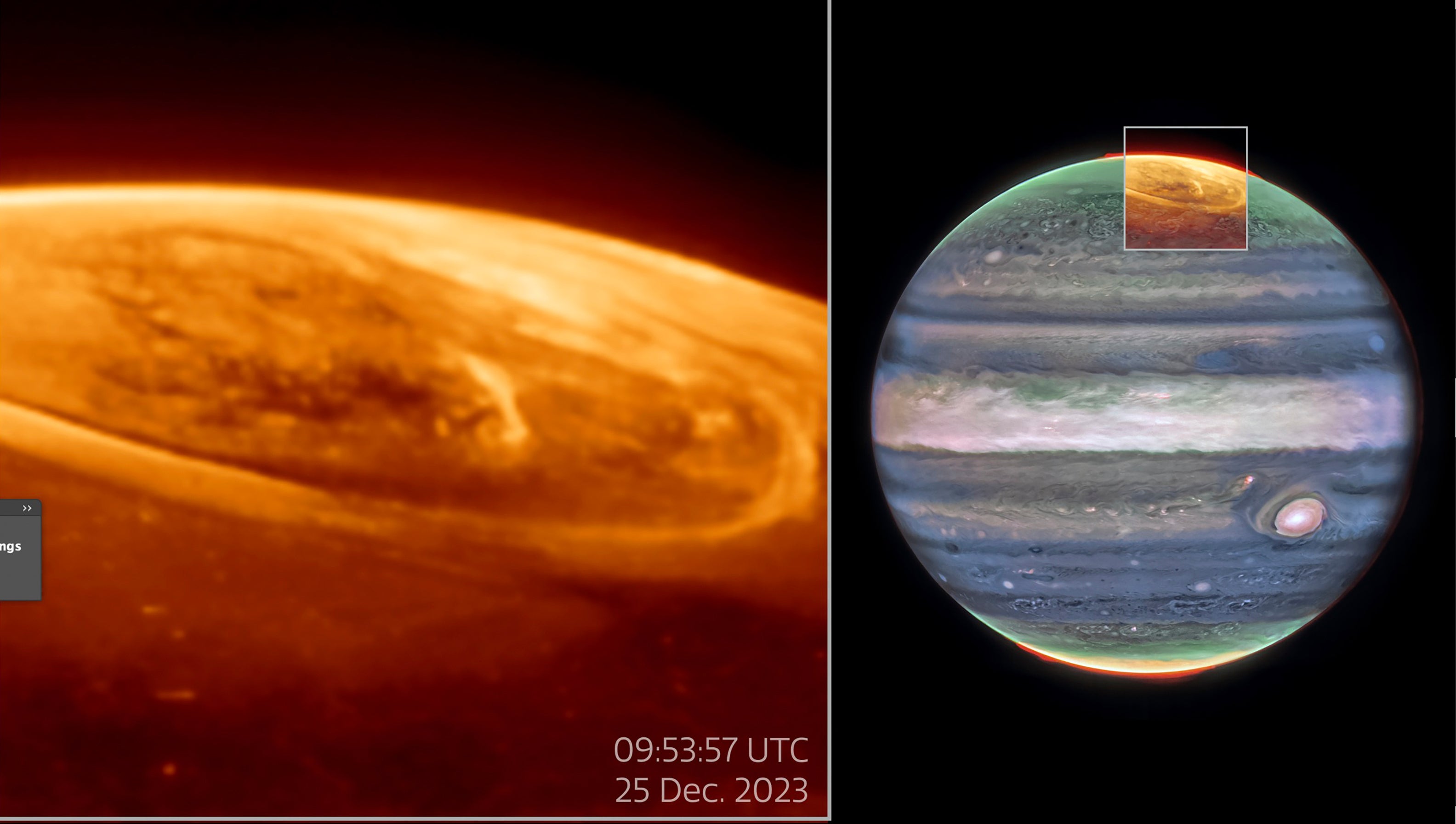Nasa captures new images of super-bright auroras on Jupiter
The auroras glow hundreds of times brighter than the Northern Lights

New images from the James Webb Space Telescope reveal the dazzling auroras of Jupiter, shining hundreds of times brighter than those on Earth.
The breathtaking displays, captured on Christmas Day 2023, showcase the immense power of the solar system's largest planet.
Similar to Earth's Northern Lights, Jupiter's auroras are created when high-energy particles from space collide with atoms of gas in the atmosphere near its magnetic poles.
However, the intensity of Jupiter's auroras dwarfs those seen on Earth, according to an international team of scientists who analysed the images.
This is not the first time the James Webb Space Telescope has provided stunning views of auroras in our solar system.
The telescope previously captured the most detailed images yet of Neptune's glowing auroras, decades after they were first faintly detected by the Voyager 2 spacecraft.

“Neptune has always been elusive," University of Reading planetary scientist Dr James O'Donoghue said at the time.
Its auroras "had only been seen by Voyager, and we’ve been trying to see it again ever since”.
Neptune's auroras occur near the mid-latitudes of the planet, not the polar regions, because of differences in its magnetic field, which determine the span of auroras, Dr O’Donoghue said.
The researchers also revealed that Neptune's atmosphere has cooled significantly since the 1980s, which may have somewhat dimmed the light of the auroras.
Join our commenting forum
Join thought-provoking conversations, follow other Independent readers and see their replies
Comments